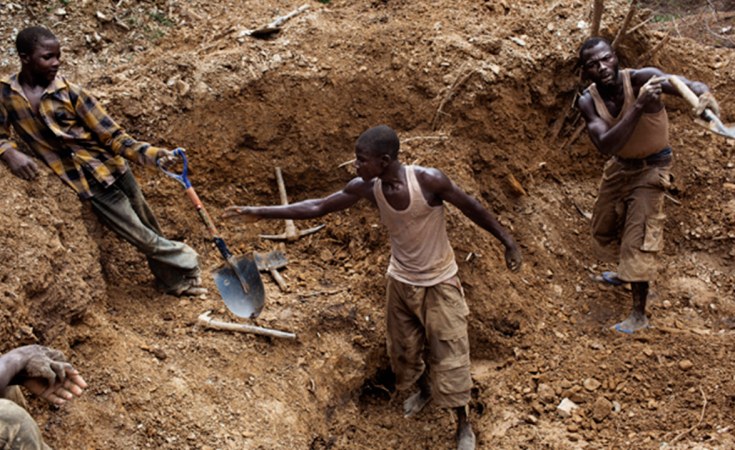Peace laureate Pétronille Vaweka urges U.S. role to end worsening war over strategic minerals.
Pétronille Vaweka, a Congolese grandmother, has mediated local peace accords in her homeland's wars. But now, she says, one of Africa's longest, bloodiest conflicts can be solved only if the United States and other democracies "will wake up" to protect their own economic and security interests. "The world's economies, new technologies and climate change all are increasing demand for the rare minerals in the eastern Congo -- and the world is letting criminal organisms steal and sell these minerals by brutalizing my people," Vaweka said this week. "Africans and Americans can both gain by ending this criminality, which has been ignored too long."
Vaweka, 75, received a USIP peacebuilding award last week and has been making her case in Washington. Her country, the Democratic Republic of Congo (DRC), is unable to control armed criminal organizations and guerrilla factions battling for power over the people and resources. "The United States and other democracies must join with African peoples, governments and international institutions in an unprecedented initiative to shut down this organized crime and help our country establish a legal, transparent mining economy that will benefit not only Congolese, but everyone in this world who uses a cellphone or a computer built with the metals from our soil," Vaweka said in an interview.
She noted that the U.S. government's 19-month-old Strategy Toward Sub-Saharan Africa declares a priority to help African countries develop economically through their increasingly strategic and valuable mineral resources -- and to ensure legal, transparent supply chains for those minerals to world economies. "Africa has suffered many wars and criminal thefts of its resources -- but we also have ended some of those wars and crimes," such as the 1990s "blood diamonds" conflicts of Sierra Leone and Liberia, she said. "We can build on those successes, but the first requirement, which so far I do not see, is the political will to act."
Eastern Congo's Agony
The dense forests, rugged highlands and lakeshores of the eastern DRC are pocked with both industrial and artisanal mines, guarded by armed militias and worked by hundreds of thousands of men, women and children who are effectively enslaved. More than 250 local and 14 foreign armed groups are fighting for territory, mines or other resources in the DRC's five easternmost provinces, the government's stabilization agency for the region said last year. Over 30-plus years, the fighting has drawn in armed forces from Uganda, Rwanda and Burundi. Tens of thousands of U.N. peacekeeping forces, soon to withdraw, and African regional troops have tried to restore order and help the government establish real authority.
"I weep because at this moment, in ... Goma" -- a city of 1 million people on DRC's Rwandan border -- "women and children are dying [and] thousands of families are forced from their villages," Vaweka told a USIP audience last week while receiving the Institute's 2023 Women Building Peace Award. The M23 rebel movement, which U.S., United Nations and human rights investigators say is directly backed by Rwanda, has targeted the Goma area, and committed documented atrocities against civilians, in the single most violent recent escalation of fighting in the east. The DRC has deployed Romanian mercenaries in Goma in a desperate bid to defend it.


